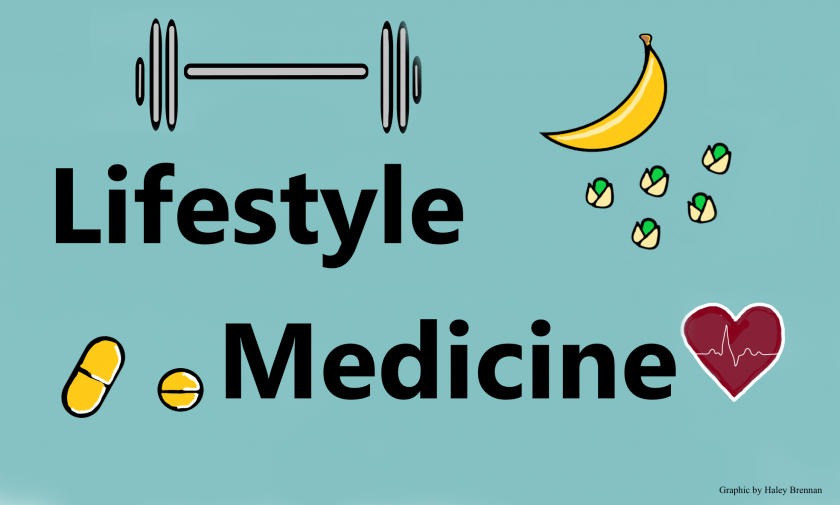
Have you heard terms like Lifestyle Medicine, Integrative Medicine, and Holistic Medicine being thrown around in media and with friends? Maybe you have an idea that these things share a common thread of treating the whole person rather than one symptom or body part. Or maybe these terms all sound the same to you and you don’t know where to begin! This article will define these modalities of medicine for you, what they hope to treat, and provide you with a beginner’s guide to learn more.
Getting the Definitions Straight
Lifestyle Medicine
According to the American College of Lifestyle Medicine, the leading medical professional organization providing standardized education for Lifestyle Medicine education: “Lifestyle Medicine is the use of a whole food, plant-predominant dietary lifestyle, regular physical activity, restorative sleep, stress management, avoidance of risky substances and positive social connection as a primary therapeutic modality for treatment and reversal of chronic disease.” Basically, the focus is Preventative Medicine – on modifiable health factors that impact overall wellbeing and work to curve the otherwise bodily progression towards chronic disease. The environment may also be an additional modifiable risk factor for disease that is included with regard to environmental toxins, mental health, and other body-environment interactions.
You may also have run into the term Personalized Lifestyle Medicine or Personalized Medicine. This definition goes a step further in using diagnostic tools to help individuals understand their health risks and modify their behaviors accordingly. Tools include genetic testing and functional biomarkers. Yet another term that specifically refers to protocol of multiple diagnostic tests to determine a care plan in the clinical setting is Functional Medicine. These measurements can be used directly with a healthcare provider to provide a specific preventative plan to stop the onset of disease before it begins.
Integrative Medicine
The American Board of Integrative Medicine (ABOIM) and the Consortium of Academic Health Centers for Integrative Medicine define Integrative Medicine as an evidence-based medical practice that focuses on the patient-provider relationship, a focus on all aspects of a person, and uses all appropriate therapeutic modalities in a cross-disciplinary and interprofessional fashion to provide the best possible care to patients to achieve optimal health and wellbeing.
These modalities include Complementary and Alternative Medicine (CAM) therapies that are largely considered outside of the biomedical model of care but are increasing in popularity and acceptance due to positive results in care. Some CAM therapies include, but are not limited to, mind-body therapies like meditation and yoga, natural products like herbal supplements, and Chiropractic medicine, to name a few. Caution must be taken when entering the world of CAM, as mass-media and unreliable sources of information may push products and alternative services that claim they are able to treat certain conditions without scientific backing. Educational training organizations like ABOIM are working to provide evidence-based practices to protect patients from these unsupported claims and is something to keep in mind if you are interested in learning more about CAM.
One other term you may come across under Integrative Medicine is Ethnomedicine, which relates specific medical models and practices to cultural groups and social institutions. Largely studied by Medical Anthropologists, this term encompasses medical systems like Ayurvedic Medicine, Traditional Chinese Medicine, and Shamanism. You can learn specifically about Ethnomedicine by reading UConn Professor of Medical Anthropology, Dr. Pamela Erickson’s book Ethnomedicine or taking the course designed to explore ethnomedicine: ANTH 3202W Illness and Curing.
Holistic Medicine
A less-standardized term than either Lifestyle Medicine or Integrative Medicine, Holistic Medicine is a preventative approach to health that addresses all aspects of a person including a person’s physical, mental, and spiritual wellbeing, as well as the social, community, and environmental factors that contribute to a person’s overall health. This is the term you may see most often in news and media outlets, but it largely encompasses the ideas discussed prior.
The main idea is that there are multiple interactions and dimensions of health than simply the physical body. For example, a wound may be able to heal, but the mental trauma of an incident may lead to night terrors that contribute to weight gain, compounding a tendency to socially isolate and therefore not get needed support from loved ones. A person may even have a spiritual crisis that leaves a gap in belief and overall meaning in life . . . Human beings are complex and therefore so is our health!
Why you should care about Lifestyle Medicine
It sounds pretty common-sense to treat the whole person, but because of the complexities of these factors, you may not be trained in Lifestyle Medicine and all of its permutations in whatever healthcare field you choose to enter. Also, chronic diseases, such as Diabetes and Heart Disease, that are difficult to treat with medications and can largely be prevented with lifestyle modifications are on the rise. Lifestyle Medicine provides a tool for all healthcare workers to gain useful skills to help individuals improve their health, avoid disease, and obtain an overall improved quality of life. As an undergraduate student, you have the ability to start learning about Lifestyle Medicine to not only become a better healthcare provider in the future but also improve your own health.
How can you learn more?
Stay tuned for a series of blogs on Lifestyle Medicine, complementary therapies, and pathways to healthcare that have a foundation in preventative medicine. You can also follow these professional organizations on social media to learn more about the resources offered and how to get involved:
- Lifestyle Medicine Global Alliance
- The American Board of Integrative Medicine (ABOIM)
- The American College of Lifestyle Medicine (ACLM)
- The American College of Preventative Medicine (ACPM)
- The Consortium for Academic Health Centers for Integrative Medicine
- National Center for Complementary and Integrative Health (NCCIH)

